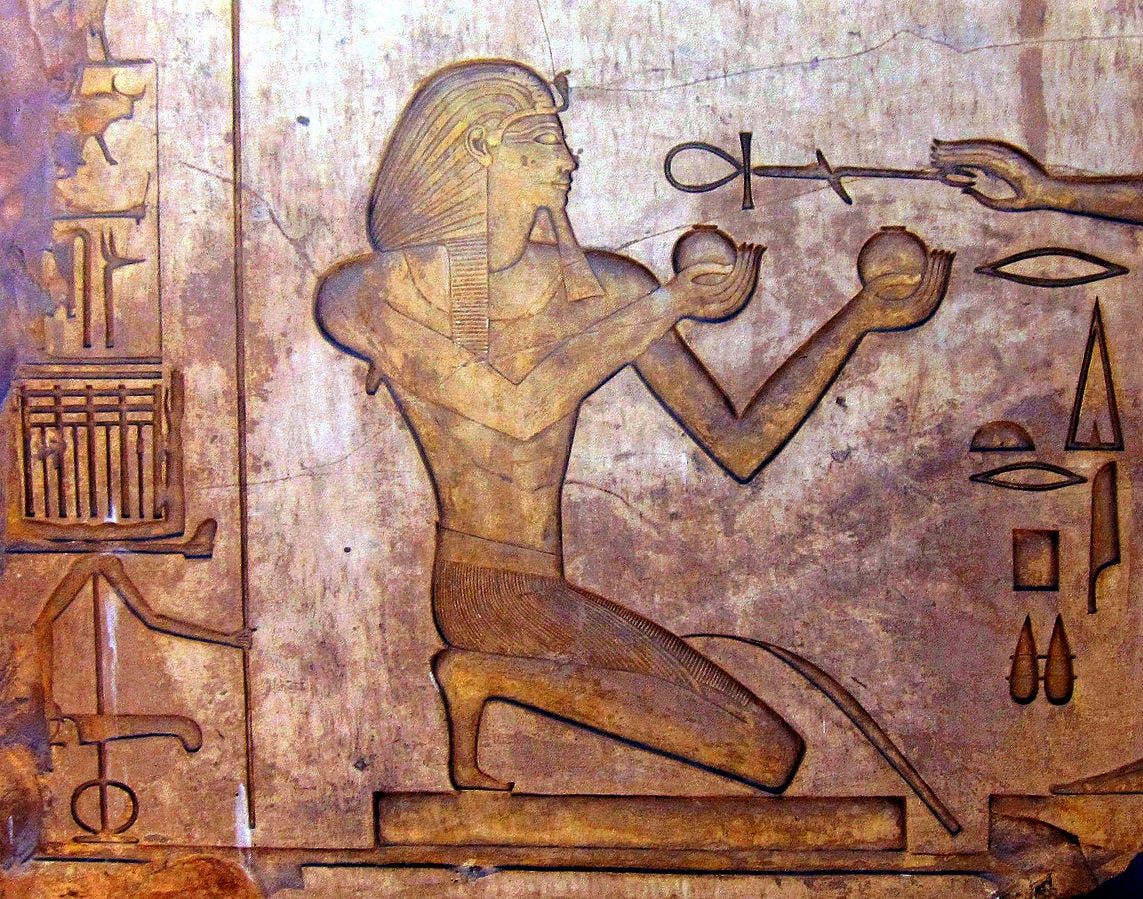Ancient History Roundup
Rome reaches Denmark, Pharaoh’s tomb, meteorite jewellery, and an ancient criminal case.
Every few weeks or so, I will post a roundup of interesting news stories about ancient history and archaeology that catch the eye!
Roman Helmet found in Denmark
In my book I try to explore the full extent of the Roman World, which went well beyond the boundaries of the Empire. Through trade, we can see that Rome was plugged into a network that stretched from Ireland right through to China, and down towards Vietnam and Indonesia. But a recent discovery of a Roman helmet in Denmark, buried at a site known as Løsning Søndermark, adds yet more complexity to this picture!
Whether this was the result of trade or is evidence of a Germanic auxiliary/mercenary taking home equipment he had received serving in the Roman army, we can’t ever really know. It goes to show just how much of an impact the Roman world had outside of its imperial boundaries, but it also serves as a reminder that Rome was not a silo in the world. People may have interacted with it, but they would also go home and leave the Roman ways of doing things behind them.
Having said that, there is research being published that explores the possible influence of Roman systems on Norse infrastructure in the early medieval period – so who knows!
New pharaoh’s tomb discovered
This story rightfully made the news around the world. The discovery of a pharaoh’s tomb is no small thing, but that they found Thutmose II (r. early 1400s BCE) is just remarkable. Rather unfortunately for Thutmose, he is often the more overlooked of the first three Thutmoses, his father Thutmose I is famous for his fort building and expansion south into Nubia, while his son Thutmose III has been dubbed the ‘Napoleon of Egypt’ due to his military exploits in the Levant region in particular and, more generally, his growth of the Egyptian Empire.

Indeed, Thutmose II is probably more famous for the legacy of his wife, the great pharaoh Hatshepsut. Hatshepsut was one of only a few women who ruled as pharaoh in their own right. She was not the birth mother of the heir (that was a royal concubine), but she was chosen to rule during his period of minority, and they co-ruled for many of the early years of Thutmose III’s reign as well. Hatshepsut is equally well known for her erasure; after her death a campaign was waged, possibly by Thutmose III, to remove her name from the list of kings and any public monuments in an act of damnatio memoriae (a condemnation of memory).
Meteorite artifact found in ancient Poland
Researchers in Poland have been studying grave items found in two iron age sites associated with the Lusatian culture, which dates back to the first millennium BCE. The burials themselves are dated to approximately 700 BCE.
The research team examined some of the metal items and tested their make up. To their surprise, they discovered very high levels of nickel. So high, in fact, that it is characteristic of meteorite iron – that is to say, the craftsman made use of the iron taken from an actual meteorite! This whole concept is made all the more interesting because, to date, archaeologists have found no evidence of iron smelting in Poland during this period. So the terrestrial iron was most likely imported and then combined with a local find of a meteorite.
The use of meteorite metal is not unique in the ancient world, perhaps the most well known is the knife found in the tomb of Tutankhamen.
Roman Tax Evasion Scheme Uncovered
A recent discovery, or perhaps rediscovery, of an ancient document has opened our eyes to the corruption that exited in the Roman Empire. A recent study of a papyrus, which had long been mislabeled as Nabataean, has revealed a tax evasion scheme being run in ancient Judea during the reign of the emperor Hadrian!
The legal document lists the sophisticated scheme in some detail, which includes the falsification of documents and the fraudulent sale/release of enslaved people (both of which were subject to various taxes)! The scheme was orchestrated by two men, Gadaliah and Saul, and we are told that Gadaliah in particular was a known delinquent to those around him:
As regards his committing violence and sedition and banditry, and the money that he counterfeited, and how he escaped from prison, and how during the visit of the Emperor he extorted money from many people, among them Lectus the centurion, and how he was many times convicted and banished.
This quoted translation comes from the research article itself, published by Anna Dolganov, Fritz Mitthof, Hannah M.Cotton, and Avner Ecker.



